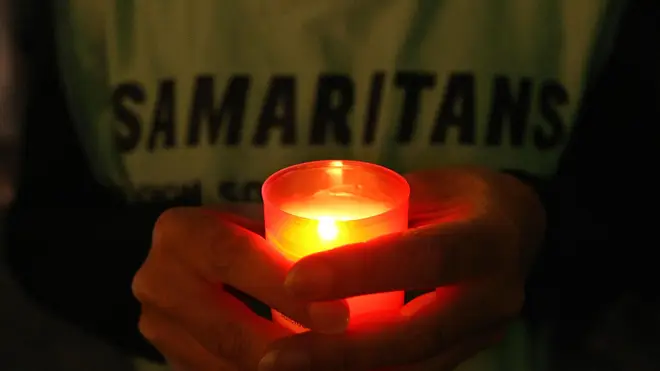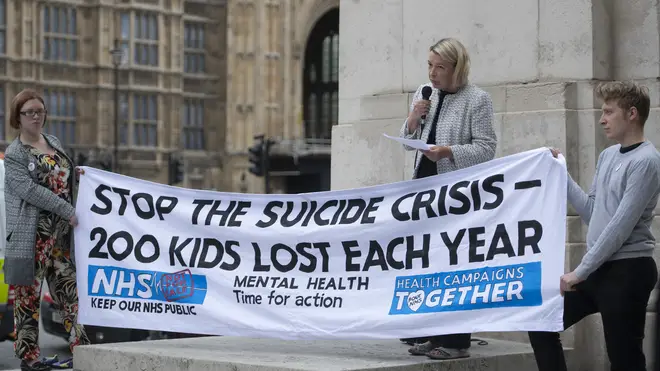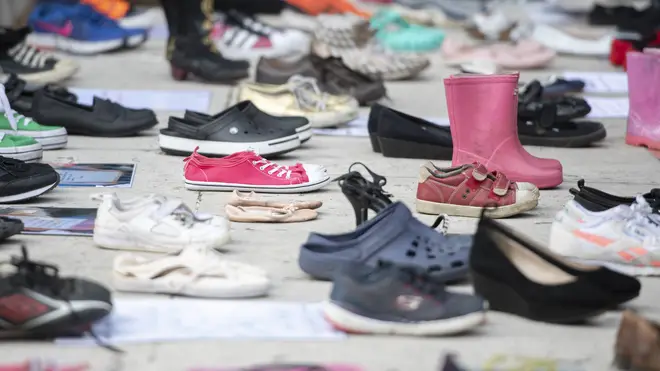
Henry Riley 7pm - 10pm
10 September 2019, 16:52

World Suicide Prevention Day takes place every 10 September and sees organisations across the globe unite in raising awareness on the issue of suicide.
"When you’re at a point where you feel suicidal you don’t believe you deserve a voice. You don’t feel like you deserve to be here full stop. But calling Samaritans gave me back my voice. It gave me the space I needed to talk."
Adrienne, 24, of North Lanarkshire had been struggling with suicidal thoughts and feelings for years; she was struggling to cope with bullying and dealing with issues regarding her mental health.
She had tried to pluck up the courage to talk to someone, but was scared to talk about it out loud.
Then one day, after desperately needing to air her feelings, she made the call to Samaritans.
"Someone will answer, someone will listen,” she said of a conversation that may well have saved her life.

'Working Together to Prevent Suicide'
This year's theme is the idea of people working together to prevent suicides, whether that be companies creating a culture of support to help their workforce, or friends talking to one another during times of hardship.
Previous themes have included, 'Take a Minute, Save a Life' and 'Connect, Communicate, Care'.
World Suicide Prevention Day sees charities like Samaritans, PAPYRUS and CALM join an international effort in highlighting how suicide is preventable and not inevitable.
Samaritans say it wants to remove the stigma of "not being okay" and encourage governments to "make better, more ambitious plans to prevent suicide."
In 2018 there were 6,507 suicides in the UK, a rise of almost 12 per cent on the previous year.
There was also an alarming increase of 23.7 per cent in the number of deaths by suicide in under 25s.
The issue is three times more likely to affect to affect men than woman, with the highest rates being seen in men ages 45-49.

Today marks a chance for charities to urge more people like Adrienne to come forward and talk about their feelings.
The 24-year-old said having a chance to talk freely, without interruption or the worry of being dismissed was "refreshing" as it gave her back her voice.
"It is a very scary thing to speak about your suicidal thoughts and mental health difficulties; there’s no denying it. But there’s also no denying how important and vital it is to talk.
"So if you find yourself in a similar position, reach out. Make that call. Don’t hang up. You’ve already been so brave to even consider phoning, so take it that step further, call up, and stay on the line."
New research into self-harm commissioned
To mark the day, Samaritans published its annual suicide statistics report, with research also being commissioned that will look into the links between self-harm and suicide.
There has been an "extremely worrying" increase in self-harm among young people, according to Jacqui Morrissey, assistant director of research and influencing at Samaritans.
She said: "Together we need to ensure young people are aware of healthy coping mechanisms when they are struggling."
The government "lacks a clear plan on how to reach those who self-harm, particularly young people and those who aren't engaged with health services", she added.
If you are affected by any of the above and need emotional support then contact the Samaritans helpline 24 hours a day on 116 123, email jo@samaritans.org, visit a Samaritans branch or visit their website.